Phúc Sen Commune, nestled within the Non Nước Geopark in the northern province of Cao Bằng, is bestowed with enchanting landscapes.
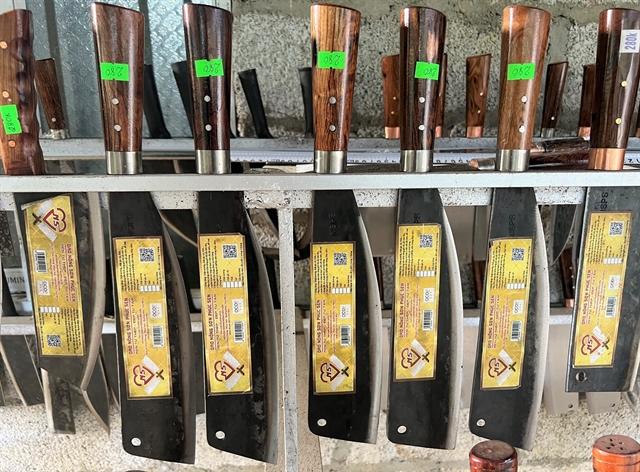
The Phúc Sen knives are known for their high quality. VNA/VNS Photo Chu Hiệu
Phúc Sen Commune, nestled within the Non Nước Geopark in the northern province of Cao Bằng, is bestowed with enchanting landscapes. The inhabitants of this area primarily belong to the Nùng An ethnic community. To this day, Phúc Sen proudly preserves numerous invaluable traditional cultural aspects, including blacksmith craft.
Right after arriving at the commune, one can easily hear the resounding sound of hammer strikes permeating every village. According to elderly residents, the blacksmith craft has existed here for hundreds of years. Generation after generation, it has been passed down within families, with each household carrying on the legacy of their forefathers.
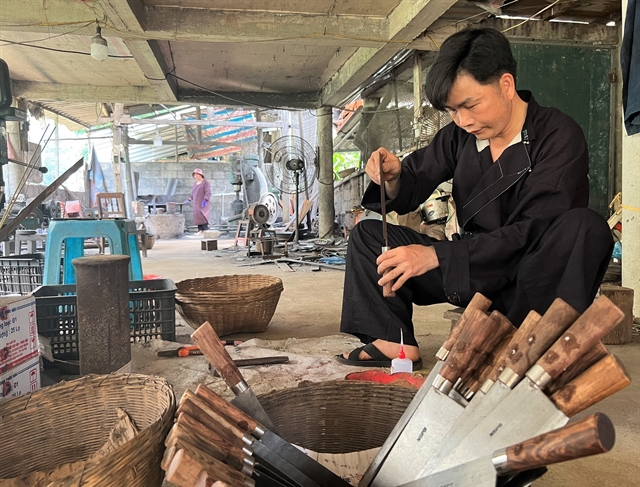
The process of handle-fitting. — VNA/VNS Photo Chu Hiệu
Unlike many others that are facing the risks of falling into oblivion, the blacksmith craft practised by the Nùng An Community in this region has not only withstood the test of time but also flourished with each passing day.
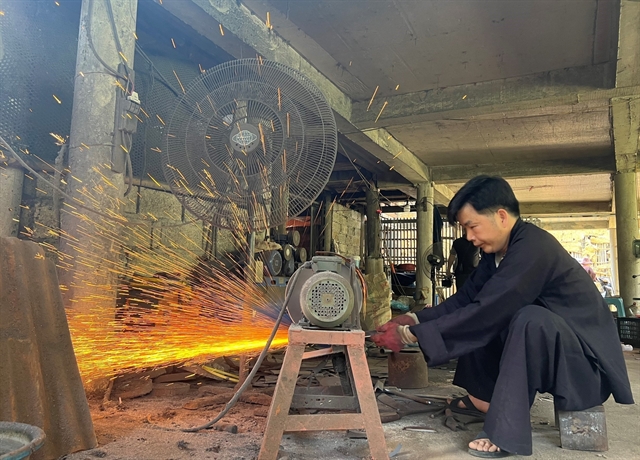
The process of steel cutting for knife production. — VNA/VNS Photo Chu Hiệu
As of now, Phúc Sen Commune consists of 11 hamlets with 1,010 households. Among them, over 200 households are actively engaged as blacksmiths. During its heyday, more than half of the hamlets were dedicated to the craft.
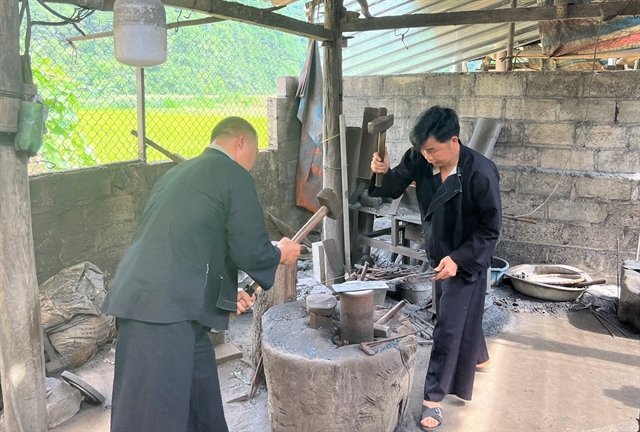
Most products are created manually to ensure their quality. — VNA/VNS Photo Chu Hiệu
Besides the normal forge tools, such as bellows, anvils, hammers and water troughs, the Nùng An people often build earthen cylinder kilns, about 80cm in height and 60cm in diameter. Thanks to their secret techniques, as well as experience, the Nùng An people have made many durable and sharp products.
There are now many technologies and machinery available to assist blacksmiths in the forging process. However, in the village of Phúc Sen, this aspect is highly limited. Most products are created manually as relying solely on machinery would compromise their quality.
According to Nông Văn Tuấn, a local artisan, the manual process of thinning and shaping the iron is extremely labour-intensive. When machines are used, the structure of the iron changes too quickly, resulting in a reduced lifespan of the knife.
The forged products by Nùng An people are highly diverse, including items such as plow blades, hoe blades, sickles, machetes, shovels, knives, hammers, axes, saws, chisels, and planes. Phúc Sen forged products have established their own brand and are favoured by both local residents and tourists alike. The craft has lifted the people of this area out of poverty, providing them with a more sustainable livelihood. VNS
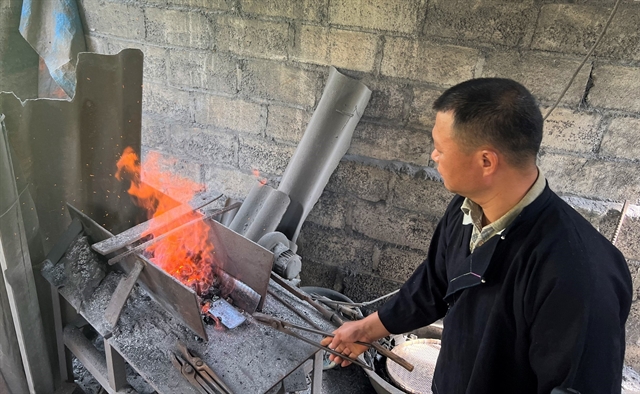
The manual process of thinning and shaping the iron is extremely labour-intensive. — VNA/VNS Photo